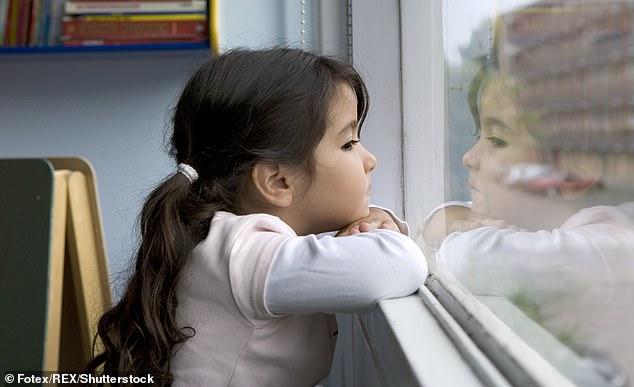Record number of youngsters who need mental health care as doctors blame the crisis on school closures, cancelled exams and lockdowns
- Royal College of Psychiatrists warned pandemic could create ‘lost’ generation
- 4,615 per 100,000 were referred to child and adolescent mental health services
- NHS research also shows that one in six children now have a mental health issue
The number of children referred to the NHS with serious mental health problems is at an all-time high, say doctors.
The Royal College of Psychiatrists warned that the pandemic could create a ‘lost’ generation who will be affected by ‘lifelong’ mental illnesses.
Doctors blamed the crisis on school closures, cancelled exams and lockdowns.
The Royal College of Psychiatrists warned that the pandemic could create a ‘lost’ generation who will be affected by ‘lifelong’ mental illnesses (file photo)
NHS figures revealed that the number of youngsters referred to child and adolescent mental health services was 4,615 per 100,000 – the highest on record.
The figures are up nearly 20 per cent from last year.
Dr Bernadka Dubicka, of the Royal College of Psychiatrists, said: ‘Landmark occasions in the lives of these young people will be lost.
‘This adds to a perfect storm of a pre-existing mental health crisis, rising demand and years of under-investment in children’s mental health services, meaning children may not get the help they need, potentially leaving a generation lost to poverty and lifelong mental illness.’

Students pictured taking a Covid-19 test at Oasis Academy in Coulsdon, Surrey. Doctors blamed the crisis on school closures, cancelled exams and lockdowns
She also wrote in the Daily Telegraph that half of the college’s child psychiatrists have reported a surge in emergency or urgent cases.
And NHS research also shows that one in six children now have a mental health issue, up from one in nine three years ago.
Dr Dubicka added: ‘The effect of school closures, cancelled exams and empty lecture halls will reverberate through our communities long after Covid-19 is consigned to the history books.’
